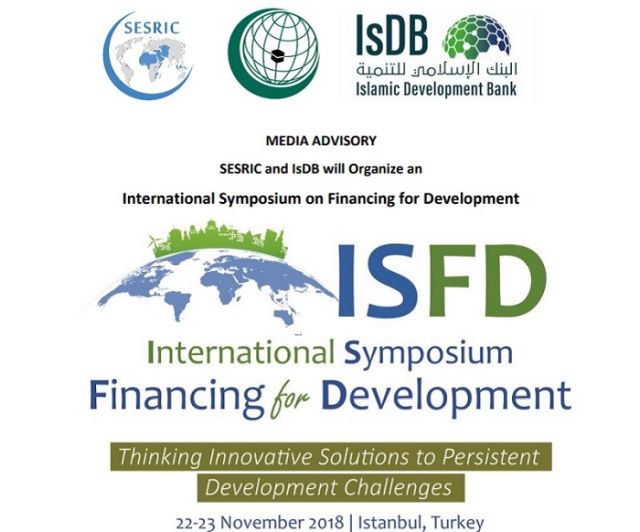
Istanbul to host SESRIC-IsDB Symposium on Financing for Development today
 Istanbul : The Turkish city of Istanbul will host Thursday the International Symposium on Financing for Development, under the theme of “Thinking Innovative Solutions to Persistent Development Challenges”.
Istanbul : The Turkish city of Istanbul will host Thursday the International Symposium on Financing for Development, under the theme of “Thinking Innovative Solutions to Persistent Development Challenges”.
The two-day event is being organized by the Statistical, Economic, Social Research and Training Centre for Islamic Countries (SESRIC), a subsidiary organ of the Organization of Islamic Cooperation (OIC), and the Islamic Development Bank (IsDB).
The symposium will provide a platform for dialogue and discussions among policymakers, policy-advisors, practitioners and academicians to address the problems related to financing for development.
The current 57 member states of the OIC are highly diversified in terms of their level of economic development and many of them require a substantial amount of resources to finance their development.
These countries continue to face persistent development challenges, mainly due lack of adequate resources and ineffective use of existing resources. Meanwhile, there are also a growing number of OIC member states that have been active in supporting development in other developing countries, but their role in development assistance is not properly recognized at global levels.
In order to address the development finance challenges, alternative mechanisms are being voiced across the globe. A particularly strong mechanism that becomes increasingly popular is the Islamic finance instruments in financing for development, which can be instrumental for OIC countries in fostering development when effectively utilized.
In this connection, the symposium aims to identify the opportunities for innovative financing mechanisms, including Islamic finance instruments, as well as effective utilization modalities of existing resources for financing development in developing countries, with a particular focus on OIC member countries. It will also highlight and discuss the growing role of some OIC countries as development financiers and emerging donors in achieving global development goals.
—AB/UNA-OIC

